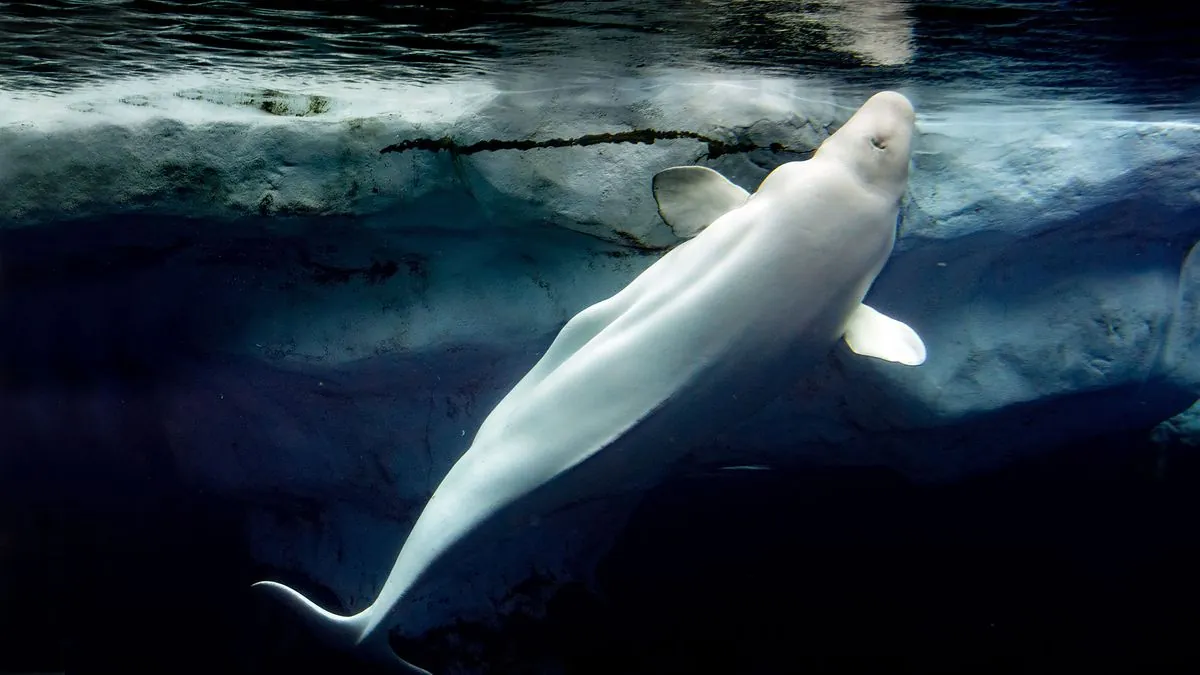In a somber turn of events, Hvaldimir, the beluga whale that captured global attention for his suspected ties to Russian intelligence, was found deceased in Norway's Risavika Bay on August 31, 2024. The marine mammal, estimated to be between 14 and 17 years old, had become a beloved figure known for his sociable nature and playful interactions with humans.
Marine biologist Sebastian Strand, who had been monitoring Hvaldimir for years, discovered the whale's lifeless body. "His passing came much earlier than anticipated, given that belugas typically live beyond 30 years," Strand noted. The cause of death remains undetermined, with an autopsy currently underway at a cooling facility. Results are expected in the coming weeks, according to Olav Lekve, a spokesperson for Norway's fisheries directorate.
Hvaldimir's story began in 2019 when he approached Norwegian fishermen wearing a harness labeled "Equipment of St. Petersburg." This unusual encounter sparked speculation about his potential role in a Russian naval program. However, Hvaldimir quickly endeared himself to locals with his friendly demeanor, earning his name through a clever combination of the Norwegian word for whale and the Russian president's first name.
Despite his enigmatic origins, Hvaldimir became known more for his charismatic personality than his alleged espionage connections. Strand remarked, "He evolved into an ambassador between species, seeking human interaction and often entertaining children with playful splashes."
The beluga's behavior, while endearing, raised concerns among experts. Catherine Kinsman, an authority on solitary whales, previously warned that Hvaldimir's attraction to humans and boats could pose risks to his safety. This friendly nature, possibly stemming from his need for companionship as a solitary whale, may have inadvertently made him vulnerable.
Regina Crosby Haug, a filmmaker advocating for Hvaldimir's welfare, had recently secured permits to relocate him to calmer Arctic waters. "It's a tragic conclusion to our long-standing efforts to protect him," Haug expressed, highlighting the dangers that human activity can pose to marine life.
Belugas, known for their distinctive white color and rounded foreheads, are highly social creatures typically living in pods of 10 to 100 individuals. They possess remarkable abilities, including mimicking human speech, which has earned them the nickname "sea canaries." These intelligent mammals can swim backwards and dive to depths of up to 1,000 meters, showcasing their adaptability in Arctic and sub-Arctic waters.
As the marine community mourns the loss of Hvaldimir, his story serves as a poignant reminder of the complex relationship between humans and marine life. The beluga's journey from a suspected intelligence asset to a beloved marine ambassador underscores the need for responsible interaction and conservation efforts to protect these magnificent creatures in their natural habitats.
"He was an animal that took the hearts of many, many thousands of people. I'll be far from alone in mourning him."
